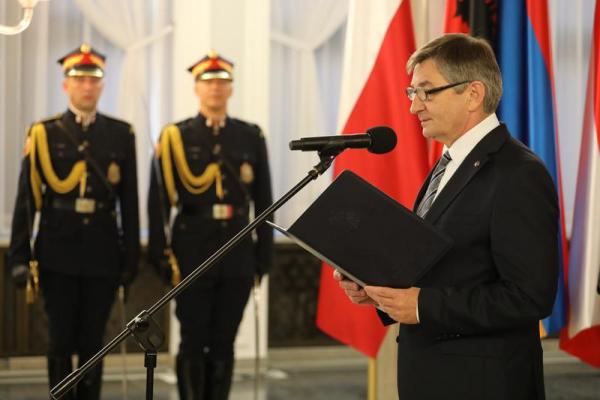
Summit of Speakers of Central and Eastern European Parliaments
Warsaw, 5 June 2019
Opening of the first panel entitled:
The collapse of communism in Central and Eastern Europe and the shaping of collective historical memory
− The rejection of communism in the consciousness of nations
− Central European community of experiences from the time of the Revolutions of 1989 as a path to success
− Are the values of freedom and sovereignty of states still applicable?
− Cooperation of the countries in the region as an assurance of growth and security
The topic of the first panel in our discussions was chosen for a purpose. The collapse of communism is certainly the most important historical event for the entire post-war Europe. This was when the fundamental changes that shaped the contemporary face of our part of Europe and its states took place.
The nations in our region have always shown great spiritual dynamism within their homelands and during emigration. It was reflected in a characteristic emphasis of the dependencies between politics and values. This was evidenced by the saintly rulers and creators of statehood and national identity in the countries of Central and Eastern Europe: Saint Wenceslaus of Bohemia, King Saint Stephen of Hungary, Saint Jadwiga of Poland, Saint Casimir of the Grand Duchy of Lithuania, and Saint John Paul II – the Pope who made the union of the matters of conscience and politics a key element of his global pastoral ministry.
This perspective was crucial to rejecting the communist ideology and the system itself. The otherness of the marvellous culture of Central and Eastern Europe proved to be much more long-lived than this totalitarian regime.
The disintegration process of the communist bloc can be analysed from several different perspectives:
1/ The first perspective is that of the countries and nations which experienced the consequences of communism, and were the direct participants of these transformations. For some, the fall of communism was connected with the establishment of their own independent statehood. For others, it meant the regaining of sovereignty after many years of foreign domination. However, everyone experienced the transformation of the political system.
Today, we can congratulate ourselves on having courageously completed this difficult process.
2/ The second perspective is the forging of a new order in Central and Eastern Europe. New states, established on the basis of new constitutional agendas, reorganised the public space, introduced new economic regulations, and began to change the social order based on the concept of private property. These measures were also accompanied by the rise of modern politics in our nations. The region once again began to cultivate the model of a Europe of Nations, based on the rule: maximum diversity in minimum space, which was in complete contradiction with the communist model, which aimed at minimum diversity in maximum space.
3/ The third perspective is of an axiological nature. It is the creation of new post-Soviet attitudes and beliefs. In this process, we all had to invoke the communist past. This important factor shapes our historical memory.
4/ The fourth perspective concerns economic and social development. Central and Eastern Europe was fundamentally dissimilar from the rest of Europe in terms of economic development, poverty and unemployment. Today, when the unemployment rate in the Czech Republic or Poland is one of the lowest across the EU, the enormity of the problem related to the lack of work and prospects tends to be forgotten. The overthrow of communism began the collective integration process of the region’s economies into European economic structures. The opportunities presented by the common market allowed much faster growth. In 1990, the GDP of Central and Eastern Europe was less than half of the EU average, and barely half in 2004. Today, after 15 years of operating within European structures, it is as high as 70%!
In the context of our experience in historical politics, there are two elements of importance. First − showing the communist era as a difficult period in history, which must not be repeated. Second − pointing out that the collapse of this system in Europe was a real breakthrough, a cornerstone of sorts, a significant milestone in the building of new political systems. The historical memory of communism and the extensive transformations associated with the Revolutions of 1989 is a treasure trove of experience.
We may have different evaluations of the communist past of our countries. However, it is treated as a common denominator that gives a resemblance to some of today’s challenges.
The most significant of these include cooperation in building regional security, as well as a debate on the system of values in contemporary Europe, including the importance of the freedom of citizens and the sovereignty of states. These are the most important issues, which are worthy of our attention also today.
Because all other issues, such as economic and infrastructural aspects, are developed based on these fundamental few issues.
Taking this opportunity, I would like to wish you fruitful deliberations in the spirit of “unity in diversity”.
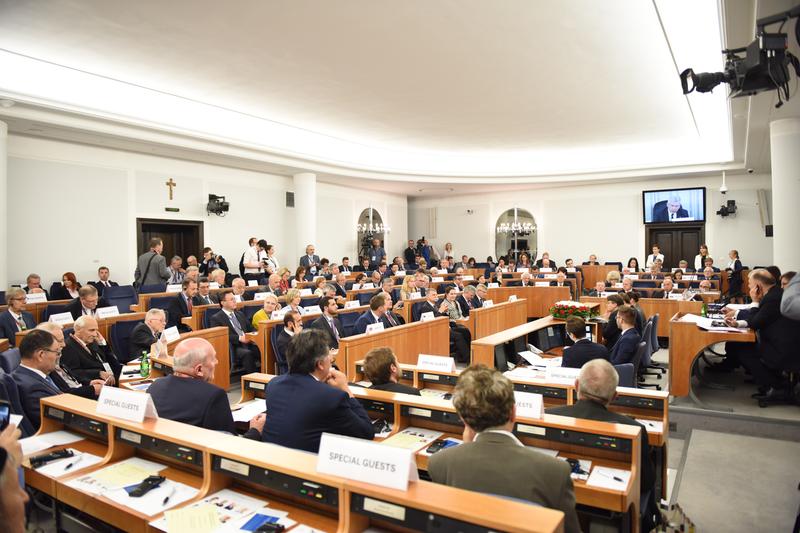
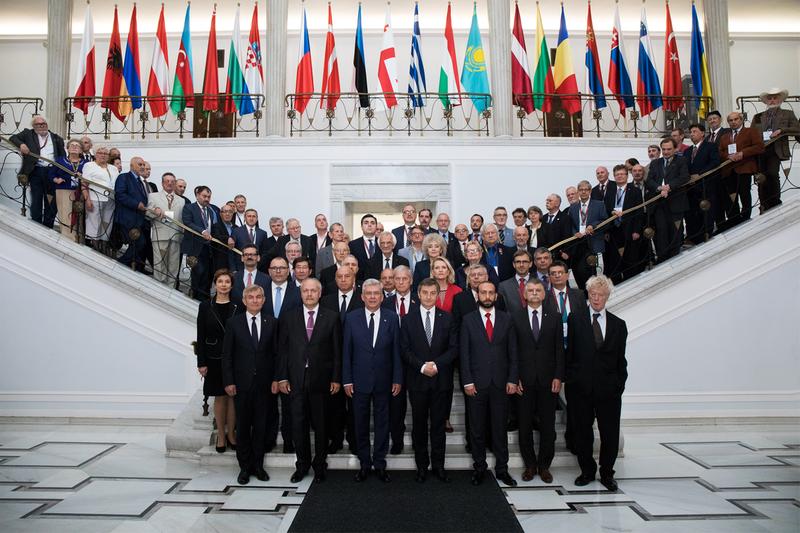
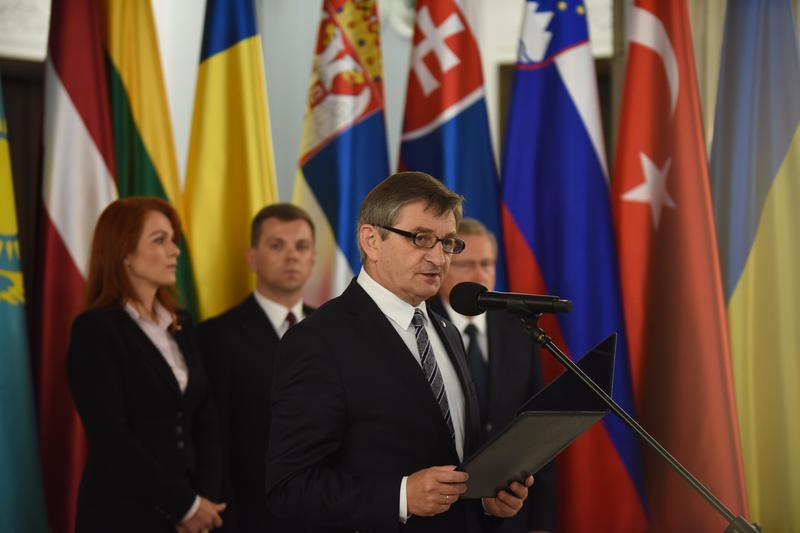
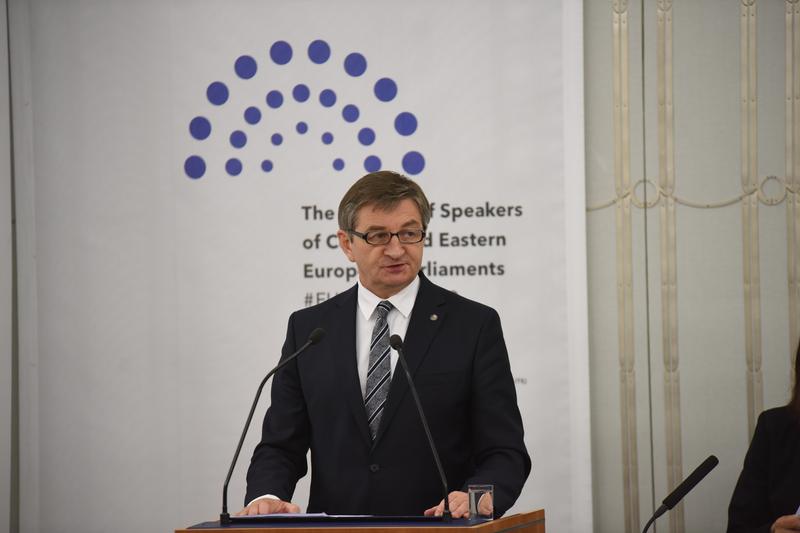
Źródło: sejm.gov.pl
